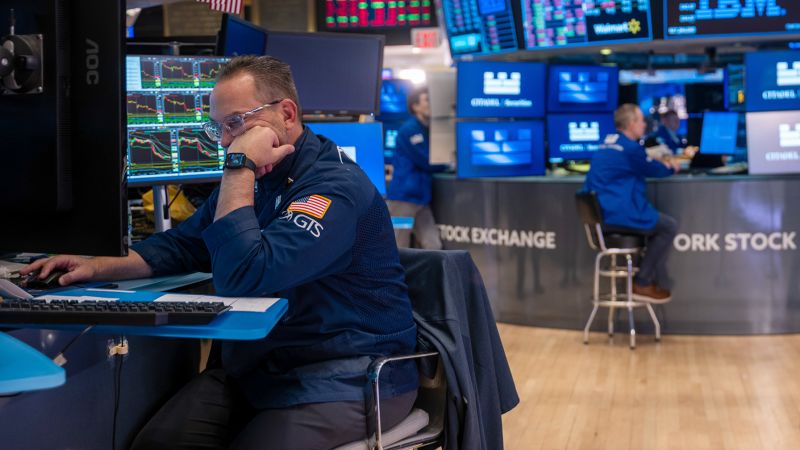
The Market’s Unease: Tariffs and the Trembling Stock Market
The first quarter of the year has delivered a stark reminder of the delicate balance of the global economy, leaving investors with a palpable sense of unease. Stocks have experienced their worst start to a year since 2020, a downturn largely attributed to the looming impact of a fresh wave of tariffs. This isn’t just a minor ripple; it’s a significant tremor felt throughout Wall Street.
The reintroduction – or perhaps more accurately, the continuation – of these protectionist measures has sent shockwaves through the financial markets. Traders are on edge, watching with bated breath as these tariffs threaten to disrupt established supply chains, increase the cost of goods, and ultimately dampen consumer spending. The ripple effect is undeniable, impacting everything from manufacturing giants to small businesses.
The argument for tariffs often centers on protecting domestic industries from foreign competition and bolstering national production. The idea is to level the playing field, shielding businesses from what are perceived as unfair trade practices. However, the reality is often more complex. While some industries might see short-term benefits, the overall economic consequences can be far-reaching and negative.
Increased prices due to tariffs are not only a burden for businesses trying to maintain profitability; they are directly passed on to consumers. This leads to reduced purchasing power, potentially triggering a slowdown in overall economic activity. Consumers, facing higher costs for everyday goods, may cut back on spending, impacting businesses across various sectors. This domino effect can lead to job losses and reduced investment, further exacerbating the economic downturn.
Furthermore, the uncertainty surrounding these tariffs is almost as damaging as the tariffs themselves. Businesses struggle to plan effectively when facing fluctuating costs and unpredictable market conditions. Investment decisions are delayed, expansion plans are put on hold, and hiring freezes become more common. This uncertainty discourages growth and stifles innovation.
The global interconnectedness of the modern economy means that these tariffs are not confined to national borders. Retaliatory measures from other countries are a likely response, creating a cycle of trade wars that harm everyone involved. International trade is significantly hampered, disrupting established supply chains and leading to increased production costs globally. This creates a truly global economic problem, transcending national boundaries.
The current market sentiment reflects a deep-seated concern about the potential for prolonged economic instability. The worst first-quarter performance in years is a strong indicator of the severity of the situation. While some argue that these measures are necessary for long-term economic health, the immediate impact is undeniably negative. The question now is whether the perceived benefits of these protectionist policies will outweigh the substantial costs associated with economic uncertainty and the very real threat of a global recession. The markets are holding their breath, waiting to see how this unfolding situation plays out. The future remains uncertain, and the burden of this uncertainty rests heavily on the shoulders of investors and consumers alike.



Leave a Reply